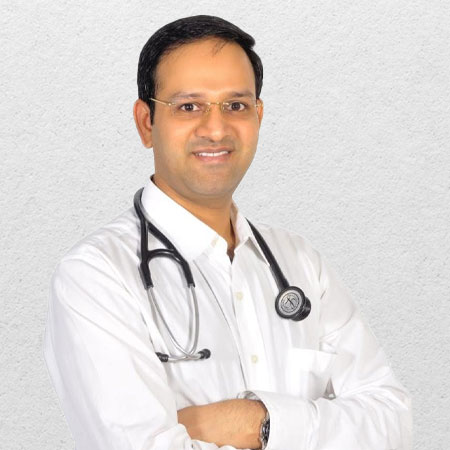
Dr.K Vamsi Krishna
MD, DM (Cardiology)
FESC,FSCAL,Gold Medalist
Dr. K Vamsi Krishna is a distinguished cardiologist based in Vijayawada, renowned for his expertise in cardiovascular medicine. With a robust background in treating cardiac conditions, he combines compassion with cutting-edge medical knowledge to provide exceptional patient care. Dr. Krishna's commitment to advancing cardiology is evident through his active involvement in research and education within the medical community. His patients value his thorough approach and personalized treatment plans, making him a trusted figure in the field of cardiology in Vijayawada and beyond.
A cardiologist is a specialized medical doctor who focuses on diagnosing, treating, and preventing diseases and conditions of the cardiovascular system, which includes the heart and blood vessels. This field requires extensive training and expertise due to the critical nature of heart health and its impact on overall well-being.
When Do We Need a Cardiologist?
People typically seek the expertise of a cardiologist under several circumstances
Symptoms of Heart Disease
This includes chest pain (angina), shortness of breath, irregular heartbeat (arrhythmias), and fatigue. These symptoms can indicate various heart conditions that require evaluation by a cardiologist.
Risk Factors
Individuals with risk factors such as high blood pressure, high cholesterol, diabetes, obesity, smoking, or a family history of heart disease may benefit from regular consultations with a cardiologist to monitor their heart health and prevent future problems.
Post-Diagnosis Management
Patients who have been diagnosed with heart conditions like coronary artery disease, heart failure, congenital heart defects, or valve disorders often require ongoing care and treatment plans developed by a cardiologist.
Preventive Care
Cardiologists play a crucial role in preventive cardiology, focusing on lifestyle changes (diet, exercise) and medications to reduce the risk of heart disease in individuals at risk.
Roles and Responsibilities of a Cardiologist
Diagnosis
Cardiologists utilize various diagnostic tools such as electrocardiograms (ECGs), echocardiograms, stress tests, and cardiac catheterization to assess heart function and diagnose conditions accurately.
Treatment
They develop comprehensive treatment plans tailored to each patient, which may include medications, lifestyle modifications, surgical interventions (e.g., angioplasty, bypass surgery), or implantation of medical devices like pacemakers or defibrillators.
Monitoring and Management
Cardiologists monitor patients' progress over time, adjusting treatments as needed to optimize heart health and improve quality of life.
Emergency Care
In emergency situations like heart attacks, cardiologists are often part of the rapid response team to provide immediate medical intervention and critical care to stabilize patients.
Patient Education
They educate patients and their families about heart disease, treatment options, and preventive measures to empower them in managing their health effectively.
Research and Innovation
Many cardiologists are involved in research to advance medical knowledge and develop new treatments for cardiovascular diseases, contributing to improved outcomes for patients worldwide.
In essence, cardiologists are pivotal in the prevention, diagnosis, and treatment of cardiovascular diseases, working diligently to ensure that individuals receive the best possible care to maintain heart health and overall well-being. Their specialized training and dedication make them essential partners in managing and improving heart-related conditions throughout a person's life.
